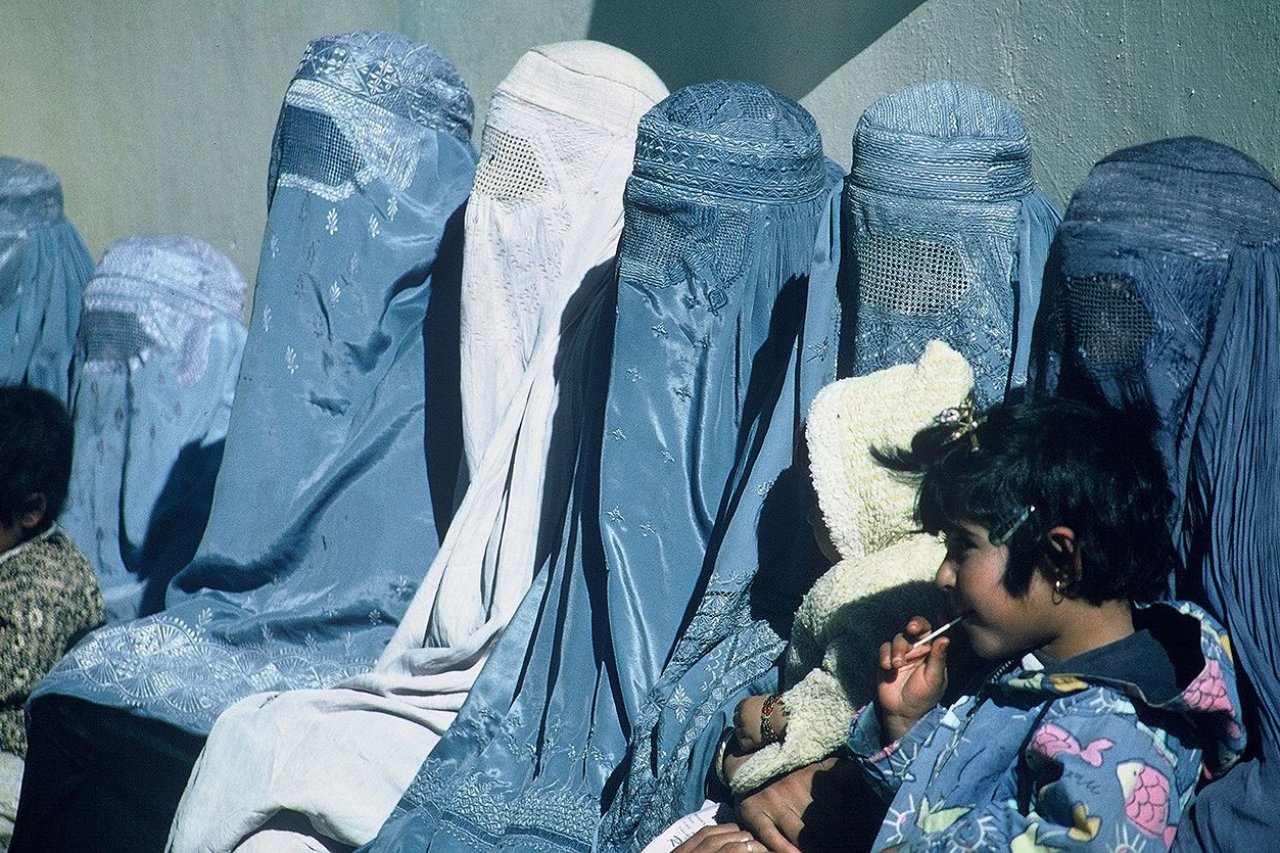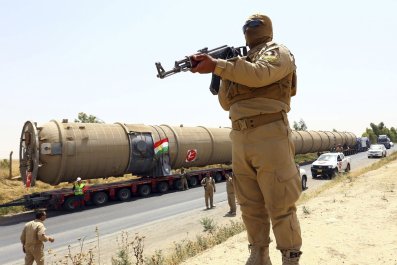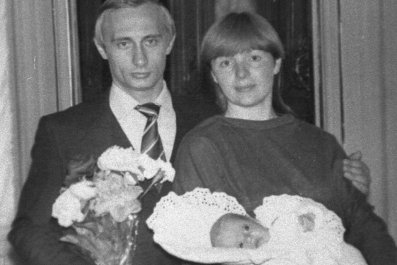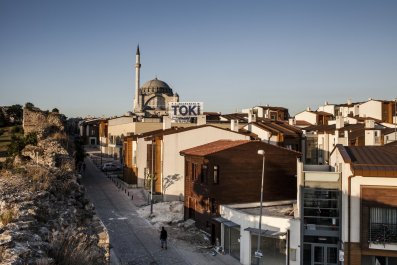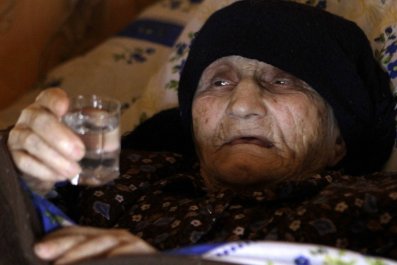Councillors in the Catalan city of Reus, about 80km west of Barcelona, have passed a law outlawing the burqa and niqab but, because of a Spanish Supreme Court ruling on religious freedom, no penalty can be imposed on Muslim women wearing any form of full-face veil.
Reus becomes the latest in a lengthening line of towns and cities in Catalonia to add some form of a burqa ban to its statute books, despite the fact that such shrouds remain an extremely uncommon sight in the region and across Spain in general. Critics say that the region's politicians are simply pandering to rising Islamophobia for electoral purposes in the build-up to next year's local elections after an openly xenophobic party made historic inroads in the 2011 poll.
"This law has a very clear intention, and it is directed against the Muslim community," says Hilal Tarkou, a lawyer and the president of Reus's Watani Islamic Association. "They are thinking about winning votes in the next elections."
Tarkou, Moroccan in origin like the great majority of Reus's 10,000-strong Muslim community – about 10% of the city's population – claims to have seen only one woman wearing a burqa in Reus, although he suspects there may be more who are now "condemned to stay indoors".
Passed by the council assembly on July 18th thanks to the votes of the conservative Popular Party and the nationalist CiU bloc of Catalonia's pro-independence premier, Artur Mas, the Reus rule was amended at the last minute to remove specific references to the burqa or niqab. But it goes further than similar laws passed in other Catalan towns, outlawing the covering of the face anywhere in the city's streets rather than specifically within public buildings.
Reus Mayor Carles Pellicer is quick to deny that the rule targets Muslims, claiming that anyone caught walking along in a balaclava or motorcycle helmet will also be stopped and face a potential fine for avoiding identification.
"It has nothing whatsoever to do with any particular community. A person's face is a key to their identity and if you walk down the street and meet someone with their face covered up, it makes you uncomfortable," the CiU politician explains. "If the Muslim community is taking this as an attack, it's an erroneous impression."
As an example of Reus council's "good relations" with the city's Muslims, Pellicer says that streets have in the past been closed to allow for popular Ramadan celebrations, although this year the major feasts are taking place in a warehouse on the city's outskirts.
Despite last year's Supreme Court decision to strike down a similar regulation in the Catalan city of Lleida, the Reus mayor says the ban on burqa- or niqab-wearing will be enforced, citing the fact that the European Court of Human Rights recently upheld France's burqa ban as part of that country's outlawing of religious symbols in public spaces.
Lleida was the first council to tackle the full-body covering in 2010, and, according to a recent report by Spain's El País newspaper, 16 other Catalan municipalities have since voted in favour of similar regulations, although only seven have officially adopted a ban. Even though many of the bans were imposed before the Supreme Court's ruling, not one case of a fine being imposed has been recorded.
For Esteban Ibarra, a human rights activist and leader of Spain's Movement Against Intolerance, the reason for this is that the problem is "non-existent" and the debate a "fabrication".
Ibarra says that his organisation has approached Spain's Justice Ministry and been told there are "no more than half a dozen" known cases of the face-covering veil being used in Spain. "This is because the dominant form of Islam in Spain is the Malaki cult from Morocco. The Islamophobic worldview tends to confuse the burqa with the headscarf and this is completely unjust," he argues. "The headscarf has an ancient tradition in Spain."
But last year's Supreme Court ruling may not be the final word on burqa bans as the justices' decision was based on local councils' lack of authority to limit the right to religious freedom. A parliamentary law could be another matter. Sources from the ruling Catalan CiU coalition say that the government "intends to introduce legislation for the entire region in the fall". This law will, those sources say, "focus on the security aspect" and include a "ban on covering the face in public spaces".
Catalonia's immigrant population stands at 14.2%, higher than the national level of 10.8%, according to Spain's 2013 official census. In the northeastern region, where Mas's nationalist government plans to hold a referendum on independence from Spain in November, concentrations of Muslim immigration have sparked disputes, particularly regarding the community's access to public services and the growing need for larger mosques.
Many towns have allowed mosques to be situated only in out-of-the-way business parks. The town of Salt blocked even that option and suspended the licensing of religious buildings in its industrial zone after the entry of the anti-immigration Platform for Catalonia (PxC) into the local assembly after the 2011 local elections. Three years ago PxC won 2.3% of the vote across Catalonia, the best result of its kind for a xenophobic grouping in Spain.
Ibarra laments the fact that Spanish lawmakers' initiatives regarding the phenomenon of immigration tend to be limited to repressive measures. The authorities have not been proactive in terms of integration, he says, because "they have not found themselves forced into action by explosive situations," citing racial violence in the agricultural area of El Ejido in 2000 as a rare exception.
"What we do have is the persistence of hate crimes down the years driven by an infrastructure of radical groups," Ibarra explains. Welcoming the fact that this year for the first time the government published a report listing hate crimes for 2013, Ibarra cites his own organisation's figures for Spain of 80 hate-related homicides since 1992 and an estimated 4,000 attacks each year, although he warns that many more may go unnoticed.
"It is fundamentally important to educate everyone in the values of tolerance," Ibarra says, condemning the fact that the almost total invisibility of immigrants in Spanish politics and the media is "generating a perverse deficit" which undermines integration.
"In public life, it is as though immigrants do not exist. And that means that any defence of their rights is very weak."



